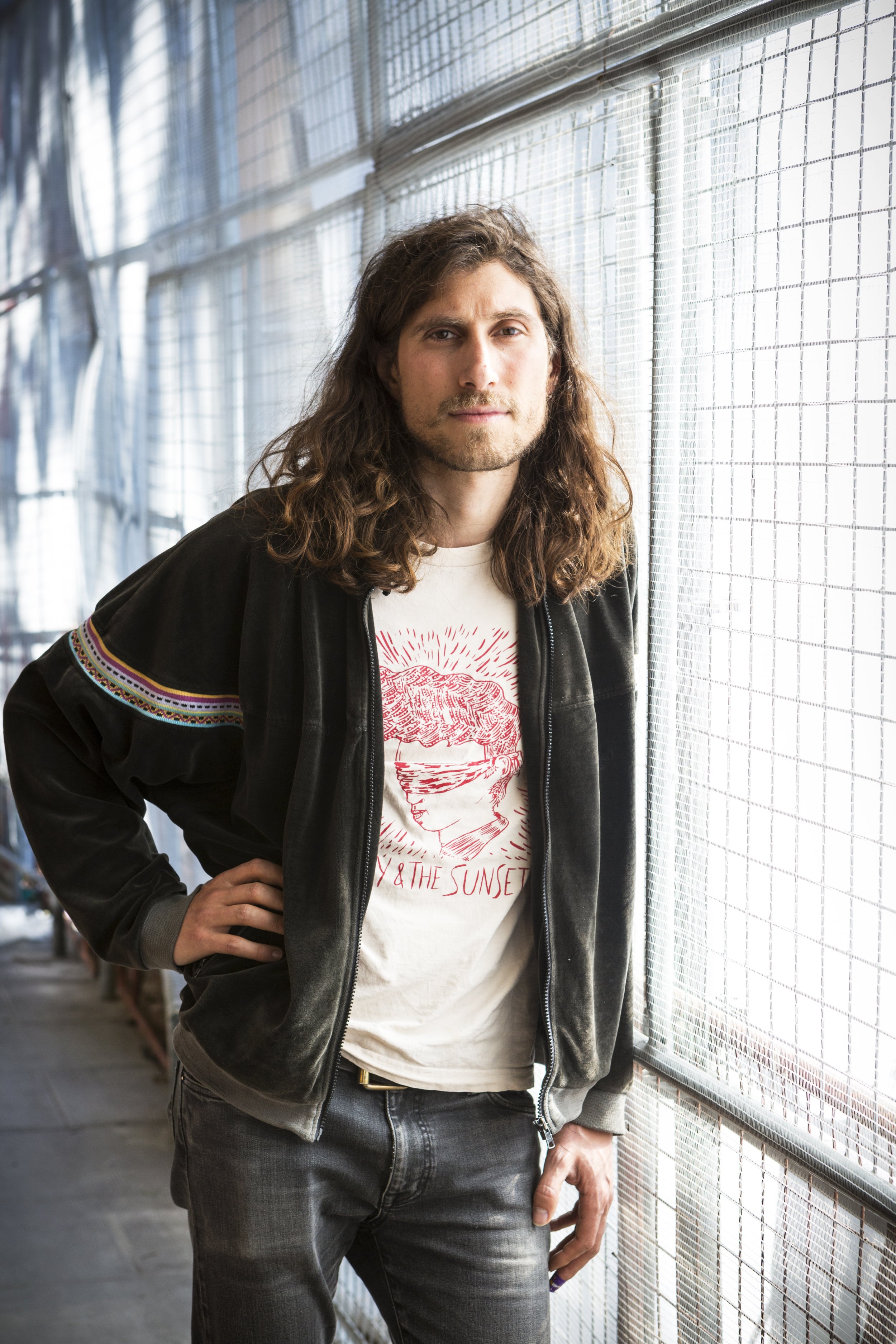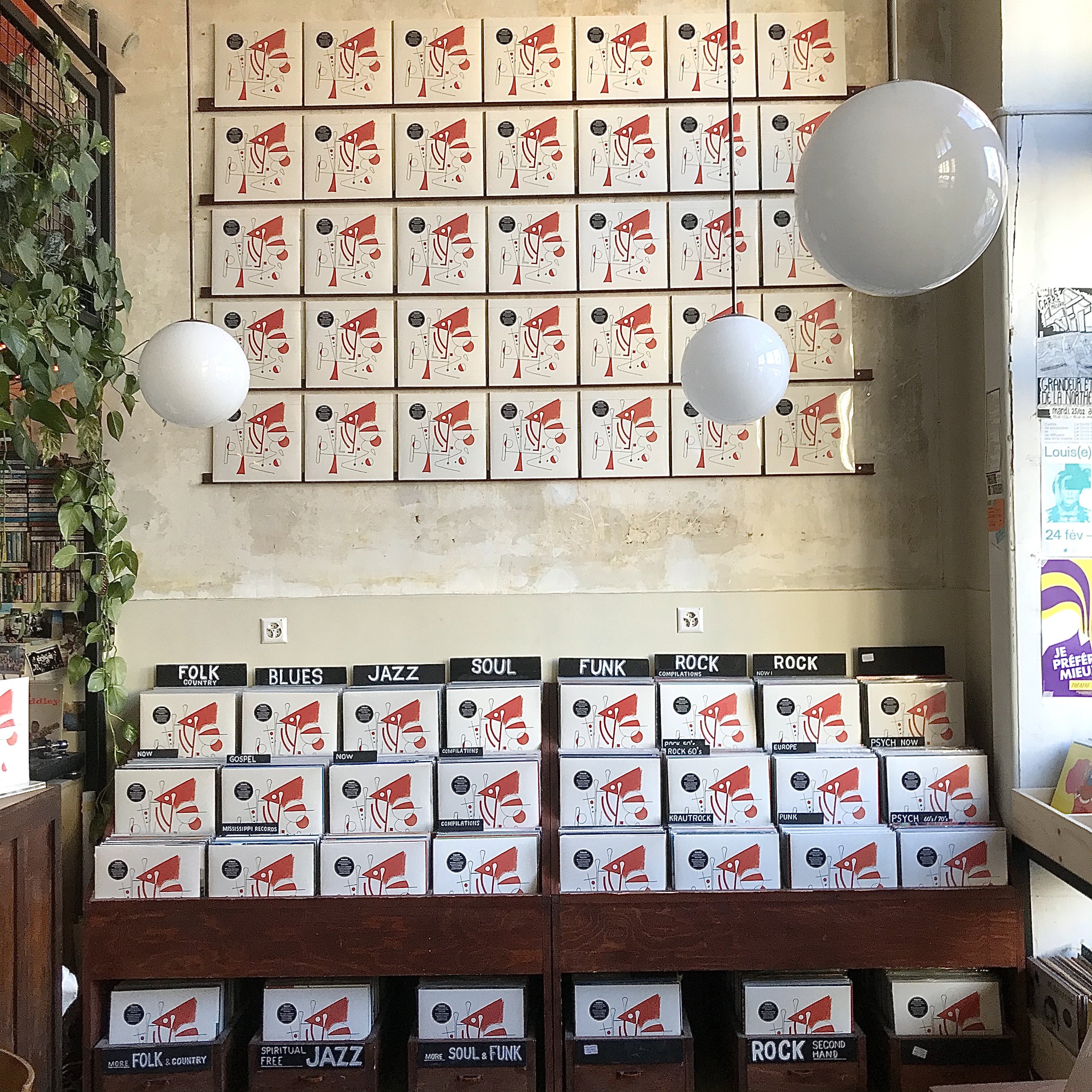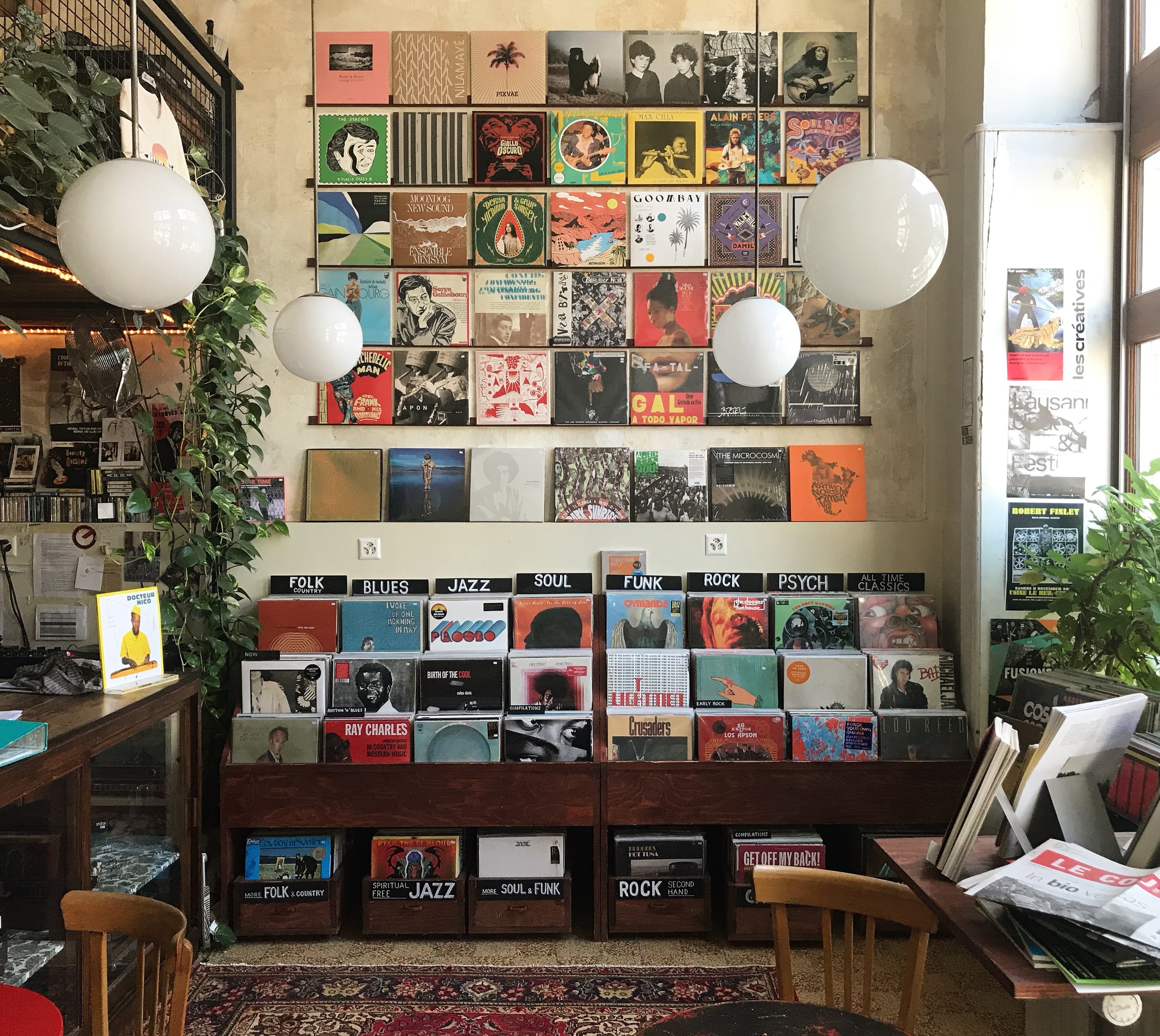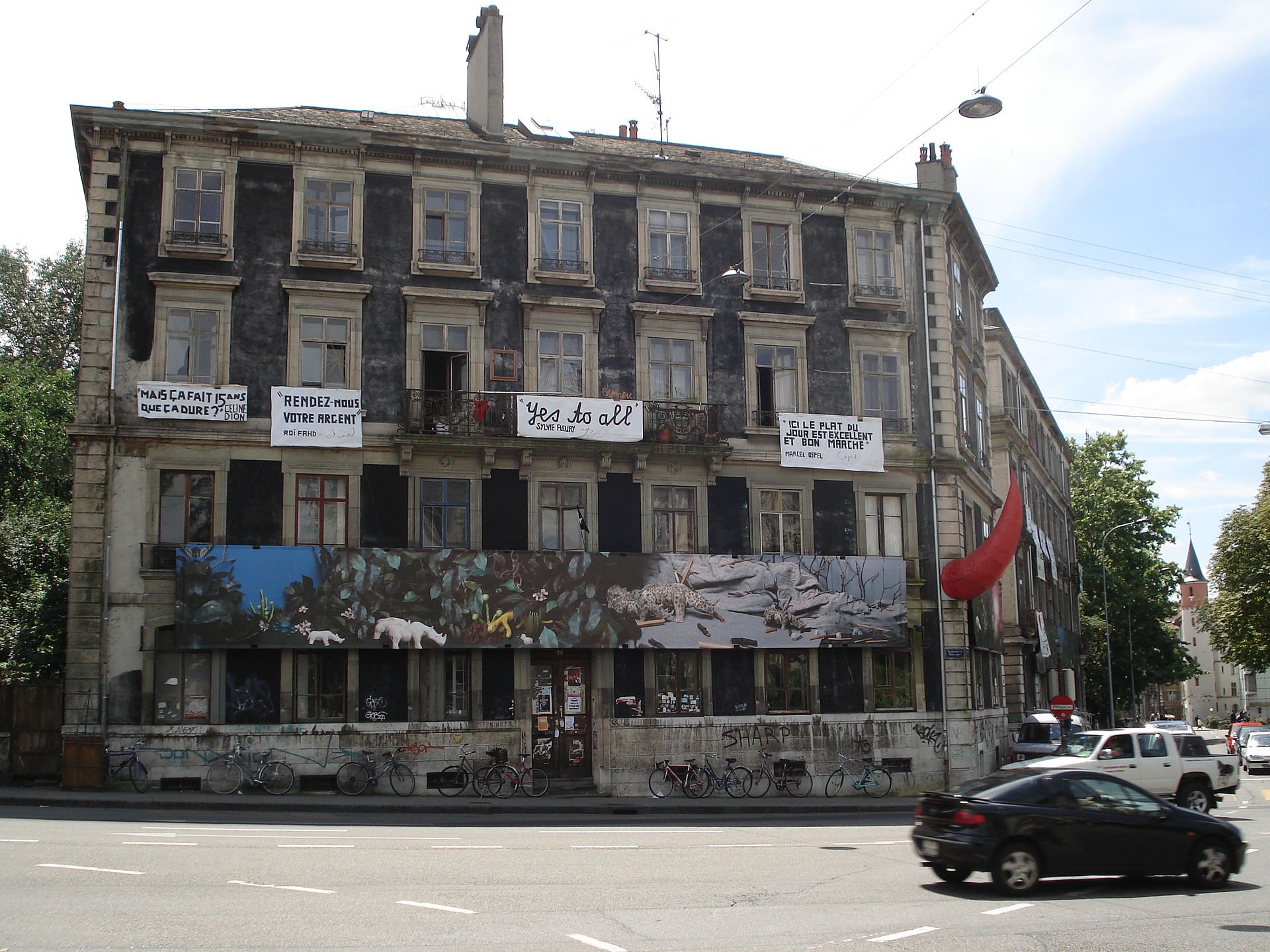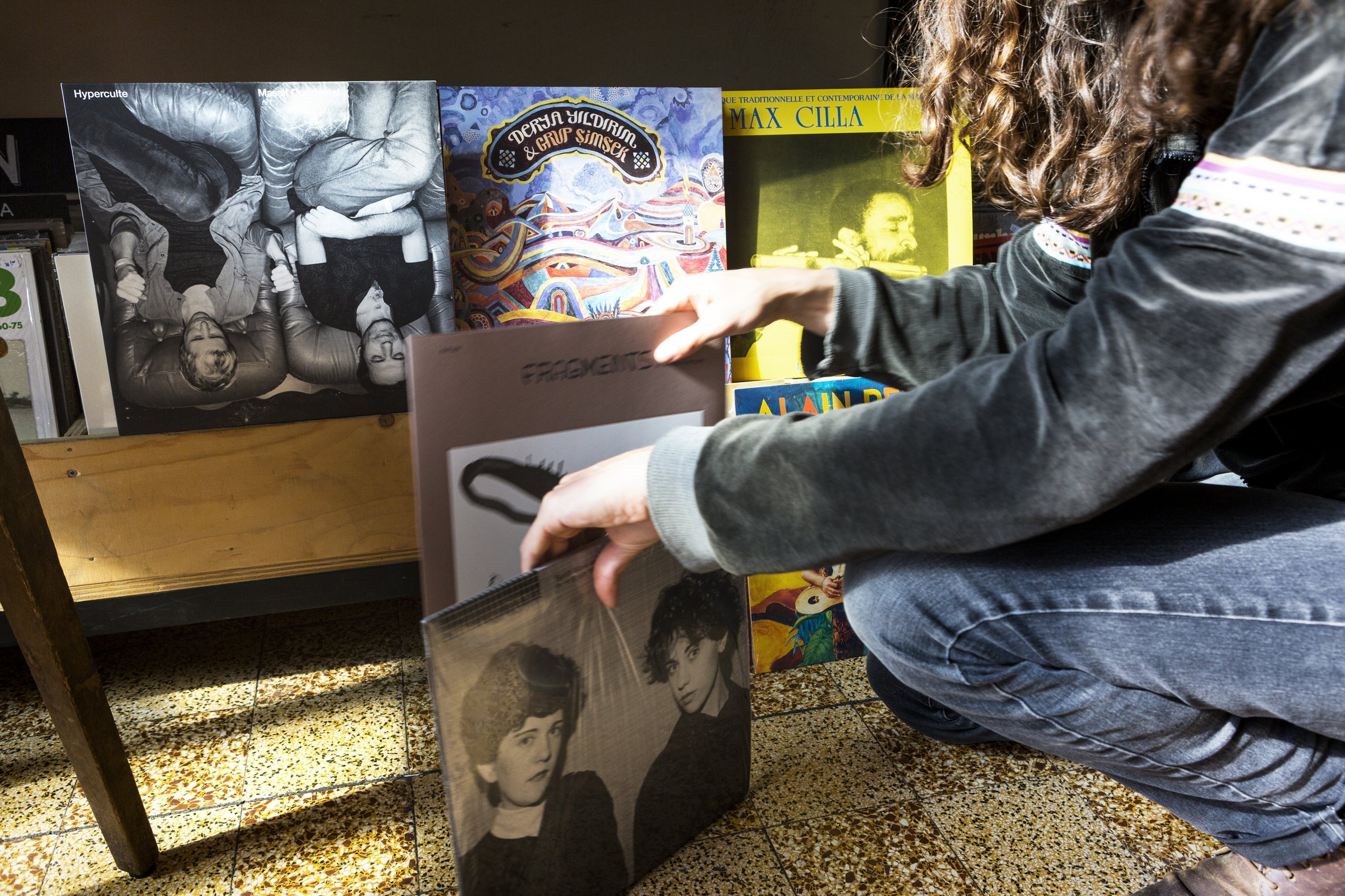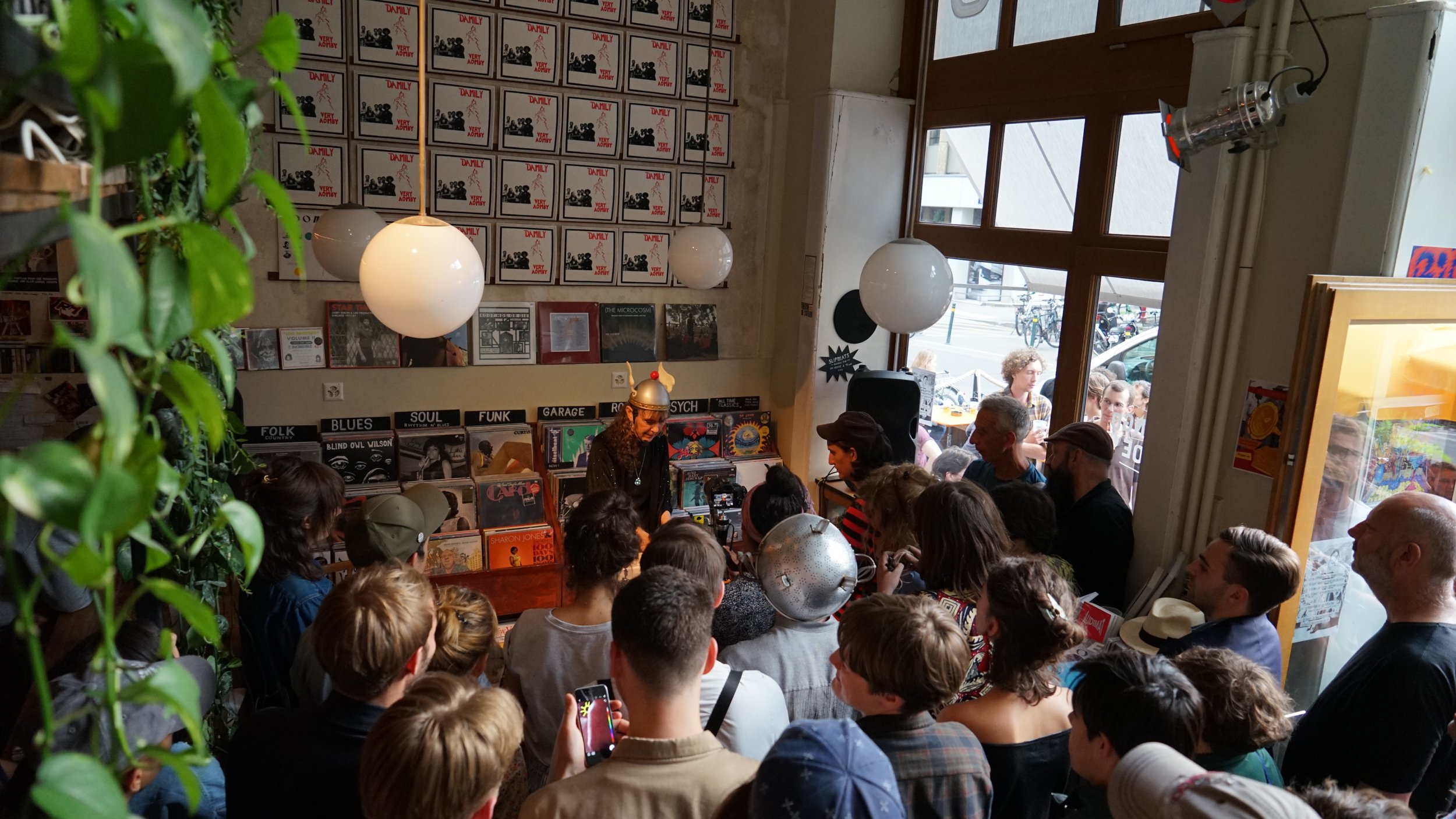Fresh Water Rhythms from Lake Sevan.
A chat with Cyril Yeterian.
It seems like fate, coincidence and subconscious heritage pursuits to be a recurring theme throughout this discussion…. Myself having moved to Amsterdam in 2015, Bongo Joe records had just announced their first release, “Drones & Love Songs” by Augenwasser, which would serve as the strong foot for many releases to come (as per our talk, it now exceeds eighty). Living in the Netherlands made it sensible that I would have first heard of Bongo Joe due to them releasing Dutch music by the likes of Altın Gün or the Mauskovic Dance Band. The rest has yet to come.
Around 2021, having moved locations from a former hair salon to right in the middle of the financial sector of Geneva, Bongo Joe continues and prides itself on its multiple, yet interconnected activities which involves acting as a record store, a record label, a café, a space for culture themed conferences or host shows. All of this, run by several musicians and DJs.
Risen from the ashes of his former label “Moi J’Connais Records”, “Les Disques Bongo Joe” was born to accompany the store's name by acting as a record label. Music genre speaking, Bongo Joe’s discography can be difficult to pin down, as they are vast in information, comprising the latest, upcoming artists whilst preserving an archaeological formative approach to their music catering. In addition to the aforementioned bands, Bongo Joe Records has championed the likes of the debut records by Swiss artists the Staches or L’Éclair, and has equally been diligent with reissues, sometimes in the form of of compilations such as “LA CONTRA OLA” (Synth Wave & Post Punk from Spain 1980-86) or more adequately “INTENTA” (Experimental & Electronic Music from Switzerland 1981-93).
With such a diverse yet serious curatorship, the music presented that Bongo Joe has to offer is thought provoking, educational and international. From hand stamping and individually listening to hundreds of vinyl pressed records at their genesis to improvising a home delivery bike courier service to bring records during the pandemic, the DIY ethos is clearly engrained in Bongo Joe. All of these accomplishments can be traced down to one person. When not spending time with his family, on tour with his band Cyril Cyril, curating tunes and broadcasting talent on radio stations such as Worldwide FM or Kiosk Radio, the man behind all of this, Cyril Yeterian, can usually be found at his headquarters. On this day, calling from his well deserved holiday somewhere in Italy, we talk in a relaxed, stress-detached fashion about his upbringing, the Genevan underground squat scene of the nineties, the genesis of Bongo Joe and the significance of his thirst to unearth music and educate through storytelling
[…] Cyril, thanks for sharing your time off to have a chat with me. Let’s go way back and have you tell me in your own words about your upbringing.
I was born in Beirut, Lebanon during the civil war, but my family comes from an Armenian-Anatolian background, and moved across Turkey and Syria, but all have roots in regions where there was a lot of military conflict . I lived a bit as a kid in Paris before settling in Switzerland, but it’s to say that three quarters of my blood is Middle Eastern, so the culture from there, at least on a musical spectrum, has been heavily incorporated by me. I have a lot of memories of me singing songs by Middle Eastern divas and such during family car rides.
For a long time, especially during my teens, I was rejecting my roots for many reasons. I guess one of them was a sense of loss in identity since I moved around quite a bit, and so I realised that I felt myself most as an Occidental person. However, through the label and my band (Cyril Cyril) gave me new insights, desires and opportunities to reconnect with my roots, whether through writing Arabic texts or melodies. Even more so by releasing and reissuing works by musicians from the Middle East. I think for many people who are expats, there becomes a sense of responsibility and obligation to represent your culture. You develop a weird connection of yourself from the past and today. For instance, we did a release that focused on what is currently happening as well as acknowledged the past by reissuing the works of this fabulous Azerbaijani guitarist called Rüstəm Quliyev. I was in contact with his nephew and family to reissue his works which was quite ironic at the time since my country and his were in conflict with each other over a piece of territory. So here I am reissuing the works of someone who is technically the enemy of my own country, and themselves, being released by the latter. So thanks to music to create a bridge between us all and prevent this disruption of attaining the more important aspects of life. These are the kind of things that give purpose to Bongo Joe and a profound sense of humanity and passion to its catalogue. And it’s not to keep referring to the past. You get the same principles with contemporary artists. Lalalar, a Turkish band that we released, is very anti-government. So the fact that they are from Istanbul and myself having Armenian roots, there are very strong links, bonds, friendships that form between musicians and people that are undeniable due to shared common values and perspectives. I understand people less and less in my life that say they do not care about politics. I find that everything in life is political. Bongo Joe’s catalogue is political. But to be honest, it turned out to be an immense advantage to have such a diverse upbringing as a child such as myself in managing a label like Bongo Joe Records to promote variety and eclecticism. It becomes a duty to showcase this desire for diversity through the label and take charge to educate others. You develop a sense of empathy and understanding to your fellow man from having been brought up with different cultural perspectives.
You mentioned growing up in the late eighties throughout the Nineties in Geneva. In an interview, you briefly spoke about being immersed through the prominent squat scene that was in Geneva at the time. Can you tell us more about that?
After the economic crisis in the eighties, Geneva was heavily affected by France’s abrupt ending of its “Trente Glorieuses” which led to the vacancy of many apartment buildings. So much that Geneva became one of the most squatted cities in Europe for over twenty years.
My teenage years were spent in Geneva, so when I got there, I took part in this scene of reggae and dub as there were a lot of events hosted in the vacant buildings across from mine. It is worth noting though that the squat scene was dissolving by the end of my adolescence, so there are definitely an older generation of people who actually curated and nourished this Genevan alternative scene before me. It was ran by collectives that took it far, to the point that we had access to makeshift cinemas, music events, concerts, catering but all very accessible and low cost. To be a creative individual during that time was immensely supported, and it was very easy to be a contributor within that scene, whether by being part of a band or art project, everything was up for grabs. A space that comes to mind is the legendary Artamis. I for one, lived in this neighbourhood called Thônex, Chêne-Bourg, where there was also a very popular squat called ‘Le Goulet’, which was a series of buildings that were squatted, from the number 9 to 25. One of its particularities was that they built their own speakers that would specifically cater for dub and reggae music. At the time I must have been around 14 years old, but this did not prevent me from attending these parties and dancing to this music all weekend, every weekend, for years to come. The sounds played were heavily influenced by London dub (Disciples, Jah Shaka, Iration Steppas….), where I started shortly after to make trips to London to grab this music from the artists themselves. That was a ride in itself, and this accumulation of music is what comprised my first record collection and therefore started my music digging endeavours.
But then again, there was not just dub in those squats. For instance, I experienced my first rock concerts experiences, where the group I co-founded that shaped a lot my life journey was Mama Rosin. Our first concert was held in the Bistrok, which was the bar/concert hall that was part of what I consider the biggest squatted space at the time called Le Rhino. It was a magnificent building whose angular side was ornamented by a big red horn, hence its name. And so the other mythical venue called la Cave 12 was birthed through the Rino’s entrails. It became nomadic several years after its closure but managed to get funding and agreements from Geneva and its Canton which left them with their own space for over ten years now.
All of this, I am telling in a very large and abbreviated portrait of all the many things that happened during this period. I mean, the people behind it all were perhaps 15 years older than I was. I couldn’t possibly take credit for it, they were the true heroes behind the scenes. What is now perhaps considered by some as ashes of the past are really better seen as contributors within the Genevan’s alternative culture DNA and has heavily influenced the way the city is today. It is to say that all of these building blocks can be found in Bongo Joe’s and other associations' way of doing things, making meeting spaces where alternative creatives can express themselves whilst remaining accessible, affordable, safe and of high quality. All of this to keep a healthy balance between your personal life, cultural values, respect of the past one while being in the heart of one of the most expensive cities in the world to live in.
So that makes a good portion of your influences. What constitutes Bongo Joe’s inspirations that furthered its growth?
Years ago, in my twenties, I did the only internship I have ever done in my life at Mississippi records, founded by Eric Isaacson and is based in Portland, USA. It was an experience that really changed my life and made it clear how I wanted to go forward. I came back to Switzerland with two big suitcases full of records. What’s funny is that Eric actually met one of Bongo Joe’s bands when they were on tour in the US recently (L’Éclair). He told them an anecdote that I somewhat forgot that not only I came back with suitcases full of music, but also with the blueprints of custom record bins that I took from Mississippi records that I ended up building with my own hands back in Geneva. Actually, they appear in a lot of the press photos of the old store but are not being used to this day.
So back in 2015, things were a lot different in the vinyl industry. I had experience in this sector from Mississippi Records but also my own previous label “Moi J’Connais” Records (2008-2015) that had a 7 to 8 year run. I think around that time vinyl was just starting to resurface, at least before major labels got their hands in it again and started to repress classics or other contemporary hit artists. Back then, records took about one and a half months to press. I would say that it was even more of a niche than it is today. With my former band at the time, Mama Rosin, it was still common as a merch product for the garage rock band scene. Maybe also for reggae or dance records, these genres never stopped being pressed on vinyl but for the most part it was not something that common. In 2013 we started the record store Bongo Joe. But I was getting a bit frustrated that there was confusion with the store and label so I wanted the name of the shop to be synonymous with the record store. So I stopped “Moi J’Connais” which became “Les Disques Bongo Joe”. At its core, it remained the same, but with an extended discography, featuring reissues of forgotten music from the past or modern active artists to also stay up to date with what is going on around us. That said, we really keep a focus to make sure that a third of our releases are artists from Geneva and the rest of Switzerland.
The name Bongo Joe is derived from the artist’s name Georges Coleman. He spent his musical career playing on these sort of improvised steel drums made out of oil barrels in the streets of Texas. He always rejected the approaches of major labels to get him recording in studios. Despite being often credited as a jazz musician, I think he contributed a lot more than that. It was very proud, unique music that not a lot of people were doing this way back then. Something that I would call proto rap that served as one of the missing links that served as a big backbone to the history of American music culture. What Bongo Joe represents, independence, freedom in creativity and choosing your own path made him a very inspiring character to me and others which drove Bongo Joe to preserve this work ethic and incorporate it into our own (after getting the thrilled permission of his family to use his name) whilst giving an homage to his name and legacy. Actually, the ten years of the shop is coming soon, so I am seeking the possibility to reissue his works since a lot of it is borderline impossible to find nowadays; Mississippi records did a reissue, but this was already 14 years ago.
Some say that the mass appeal of the art of the album is dying. Instead, the album is being replaced by playlists and singles which has been in part influenced through technology. However, the idea of a concept theme for an album, which better expresses narrative endeavours, is well translated through your label. By also issuing compilations, you still manage to tell a story through them. To what extent is story telling relating to music important to you when issuing a release? Do you think that people actively or subconsciously search for storytelling, wether it is to form a connection with an album and therefore the artist?
I find that humans are fascinated by stories, whether fiction in a book or in our case; music. People like to dream and be inspired, so I find relating music to storytelling very important to the label. As mentioned before, my diverse background I guess subconsciously affects me in decision making of the label’s catalogue, so I like sharing stories told by others. But we never made it a focus point really, it just came naturally with what we do. It is much easier to write about a deceased person who has already had their life story behind them, where you can only try to tell it the best and most accurate way possible, then to release contemporary white kids from Switzerland whose musical journey has just begun. But you find a bit of everything everywhere I suppose. To answer your question, I and therefore we, do not believe the concept of the album is dead. We rely on albums for the story telling aspect. You can’t do the same by blurting out single digital releases regularly, it just does not work the same. It’s meeting the demand for a niche after all.
“You have to at times remind yourself why you are doing this. It’s important to not confuse hard work for your passion with a chore to meet financial ends. A safe cultural platform as opposed to a music distribution business.”
That said, I appreciate your remarks regarding a sense of responsibility in curatorship. I am very grateful that we released everything I ever wanted to. But there is indeed a responsibility and therefore duty in not putting “anything” out, and to be the most accurate and respectful when handling reissues. It’s a constant sensitive subject to do these things right and to make sure the door is always open for debate and discussion; between us, the artist and the audience. With this responsibility comes big risks. Of course, exploring all of these niche genres means that it is not necessarily accessible for everybody. Regarding the artists, we try to respect their wishes the best we can, as not everybody necessarily wants to go on tour or to be faced in the spotlight, so it's very important for us to break these traditional walls of major labels to make one a star. We see it more as a partnership, where we can grow together at the same time.
Listening to your catalogue, there is obviously a sea of genres to explore. Yet when going through, there is a sort of pattern that can be heard that relates to that Bongo Joe sound. With such a varied discography, how do you promote eclecticism whilst keeping that Bongo Joe stamp?
Thank you for feeling that. That is the best compliment somebody could give me. I think on one hand its unpredictability. On the other, it’s through experience. The label has been active for quite a while now, so there is some evidence of that through the experiences we all had. It plays a part in what you like and what works for you. I think what plays a big part in this is that we are willing to take risks and not go for the obvious success hits. An example I can give you… I was submitted this album by this Cape Verdean guitarist’s who had a really nice story, background, and it seemed like this could be used as a project with big potential. But when we listened to the music, although it touched me immensely and considered it some of my favourite stuff, it did not feel like Bongo Joe. When it does not sound Bongo Joe, in this case, it means that it was too ‘World Music’, too clean, too FM basically. Although this person and their music were incredible, it did not contain enough risks. Even though we did releases that were traditional and in their element, there was always a twist; thse artists were always ‘weirdos’, outsiders of their own scene. Having the basis and core of a genre yet being leftfield about it. It would not make sense (for us) when things are too obvious and accessible. It’s important to make one think, to challenge them, in order to break barriers and move on to next levels of experimentation in discoveries. The way we preserve our sound is encrypted in Bongo Joe’s DNA; by riding on the side road paralleling the highway to success. We want to show the listeners of this highway that there are side roads to more obscure music next to it.
Before we part ways from this little chat I have to ask. On a semi unrelated, perhaps anecdotal note, with bands with names of the likes of Cyril Cyril, Léoni Léoni, Citron Citron… is there an ongoing trend in the Swiss underground of double naming your band name and is this an upcoming compilation of yours on Bongo Joe?
That’s hilarious that you noticed this. Yes it has been pointed out to us before, especially during our Bongo Joe label nights. We found ourselves at times with posters that had the aforementioned bands as part of the roster, so we got teased about it. Indeed it is not a printing issue, nor is it intentional. You’d have to do a whole sociological research to figure out the significance behind it. But it never felt too far-fetched on our side as far as I am concerned. Cyril Cyril comes simply from the fact that myself and other band mate are called Cyril. Leoni Leoni well… because her name is Leoni! And Citron Citron, it is because they are two blonde siblings with a bowl cut type of hair cut, which they find themselves looking like halved lemons. Hence… It would be amazing to do such a compilation, but for now that’s all we have in that department name wise, so we will see what the future brings to us, as you know, we go with the flow.

